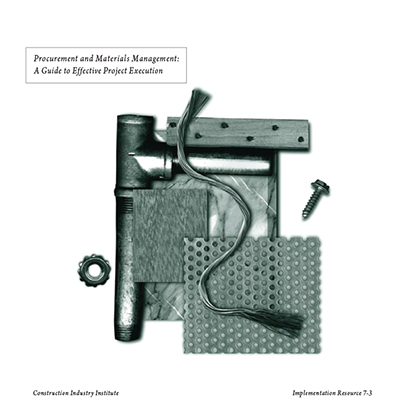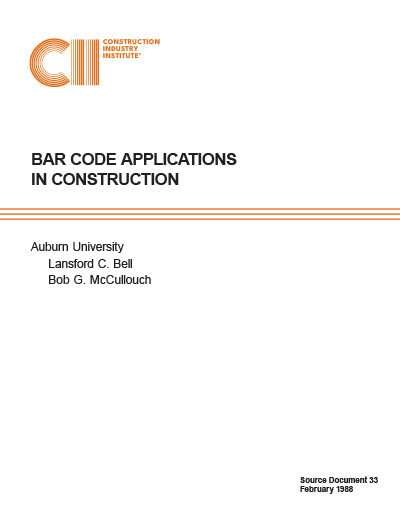
Costs and Benefits of Materials Management Systems
Construction professionals are recognizing the need to focus on the materials management process as a proactive, identifiable entity which has a significant impact on the cost of construction. In recent years both construction contractors and owners have developed integrated materials management systems that combine and integrate the takeoff, vendor evaluation, purchasing, expediting, warehousing, and distribution functions.
The costs and benefits of integrated materials management systems have been examined by researchers at Auburn University and Texas A&M University as part of a recently completed CII research project. After examining data from 20 construction projects, the researchers concluded that properly designed and implemented materials management systems will produce tangible benefits in the areas of improved labor productivity, reduced bulk materials surplus, reduced materials management manpower, and cash flow savings. The most significant benefits occur in the area of improved labor productivity. A basic materials management system can be expected to produce a 6% improvement in craft labor productivity. When sophisticated computer controls are implemented and the crafts use the system to plan their work around bulk material availability, an additional 4-6% in craft labor savings can be expected.
The costs associated with system development and implementation are substantial, and are frequently questioned by top management. It is not uncommon for a contractor to spend $500,000 to develop a computer-aided system which will track bulk materials on a requisition line-item basis from the initial quantity takeoff to field installation. This same system also will have substantial costs associated with computer use, data transmission, and personnel training. However, the old adage, “You have to spend money to make money,” has never been more true. The general knowledge of materials management concepts and the development of the state of the art has reached the point that with a reasonable amount of planning by the owner and the contractor, a cost-effective materials management system can be put in place. The alternative is the continuation of the costly process of materials handling that has too long haunted project costs—for materials do exist and are required, and they will be handled in some inefficient, unplanned way unless owners and contractors require a planned materials management effort on their projects.
This publication is intended as a guide to the construction industry to understand materials management concepts, the cost of the efforts, and the positive results which can be expected.



